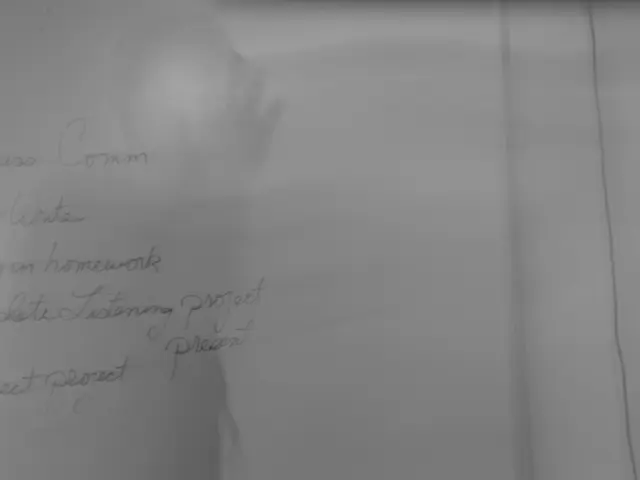Dialogue with Marissa McKool
A Brace for the Storm: Navigating Burnout in Tumultuous Times
Marissa McKool, MPH, a seasoned public health professional, knows all too well the hurdle of burnout. After a decade in the field, including leadership roles at UC Berkeley's Wallace Center and the CDC, she found herself drowning in stress, fatigue, and doubt about her chosen career's sustainability. But coaching transformed her life. Now, as The Public Health Burnout Coach, she empowers women in the field to reclaim their vitality, without compromising their impact.
Since 2021, Marissa has been a full-time coach for high-achieving women in public health who are running on empty. Drawing on feminist principles and her personal experiences, she equips her clients with the tools to recognize chronic stress, set guilt-free boundaries, and break free from the burnout cycle once and for all.
In this raw and insightful interview, she delves into what sets burnout apart from everyday stress, the role of internalized expectations in keeping women trapped, and why recovery isn't just possible—it's transformative.
The Burnout Phenomenon:
Emotions like fear, anger, anxiety, and other negative feelings are normal responses to the political upheaval that envelops us. As humans, we're tuned to experience the entire spectrum of emotions—both positive and negative. Burnout kicks in when we get stuck in these challenging emotions. It happens when fear, anxiety, and overwhelm become relentless, leaving us either bewildered about how to shift gears or incapable of doing so.
Conquering the Burnout Beast:
Stress isn't an emotion; it's a physiological response to external stimuli. When we encounter a stressor, our brain might trigger our body's stress response, often referred to as fight, flight, or freeze. While this response is crucial for our survival, modern life often triggers it over things that don't actually threaten our immediate existence, like difficult emails or job rejections. When we're unable to escape this stress response, it evolves from acute to chronic, morphing into burnout.
Unfortunately, most of us weren't taught about the stress response or strategies for intentionally exiting it. But the good news is: once you learn how to manage your stress response, you can begin to recover from burnout and thwart its return.
"Burnout isn't only about doing too much—it's about forgetting you matter too." -Marissa McKool, MPH
The Dance Between Personal Change and Structural Injustice:
Systems thinkers abound in public health, but burnout is deeply personal. Striking a balance between personal change and addressing broader structural issues can sometimes feel like walking a tightrope. As a coach, I help my clients navigate this intricate dance. I view burnout as having two primary root causes: external factors (systemic policies and cultural norms) and internal factors (beliefs, personal choices, and behaviors). External factors create external stressors beyond our immediate control, while internal factors are the personal demons we can conquer. This is where coaching can make an indelible impact, even if we can't mend all the external, systemic barriers.
Fuelling the Fire of Women in Public Health Leadership:
My coaching strategy focuses on undoing the effects of patriarchal conditioning that often fuels the internal causes of burnout. The patriarchy impacts women in numerous ways, such as the gender pay gap and the absence of national paid maternal leave policy. However, it's less-discussed how women internalize these messages.
When women are conditioned to believe their role is to ensure everyone's happiness and wellbeing, it's all too simple to start feeling guilty about saying no or setting boundaries. This leads to overworking and difficulty setting limits. In coaching, we work to banish the guilt and shame many women feel about not being enough or not doing enough. By dismantling these deep-rooted feelings, women gain the confidence and empowerment they need to prioritize themselves without hesitation.
Unpacking the Last Couple of Years:
Despite the heightened political attacks on public health, reproductive rights, and DEI efforts, I haven't noticed a significant shift in what my clients are grappling with in sessions. Instead, what I've found is that during times of crisis or increased external challenges, the same burnout issues are amplified. For example, some of the women I worked with during COVID were experiencing overworking. Though it may seem as though COVID caused this burnout, in reality, these women were already overworking before the pandemic struck.
This revelation underscores the importance of addressing internal causes of burnout, as external factors might exacerbate existing issues but don't necessarily create them from scratch.
- Science can help us understand the physiological response to stress, which, when chronic, can lead to burnout – a phenomenon that affects many professionals, particularly women in public health.
- Workplace-wellness programs focused on health-and-wellness, mental-health, and women's-health could play a crucial role in educating individuals about the stress response and strategies for intentionally exiting it, thereby helping combat burnout.
- Personal-growth and self-development through coaching, grounded in feminist principles, empower women to recognize and manage chronic stress, set guilt-free boundaries, and effectively combat burnout, fostering resilience and transformative recovery.








